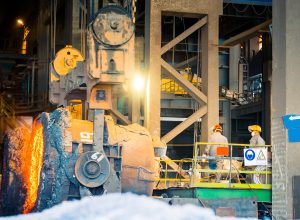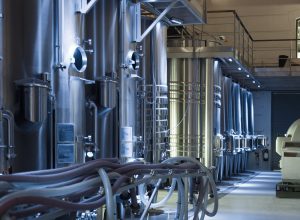The global economy is witnessing an unprecedented shift towards digital transformation and sustainability in supply chain management.
In the face of increasing consumer demand for transparency, the pressure to reduce environmental impact, and the need to respond effectively to disruptions, businesses must adapt and innovate to remain competitive.
This article explores the future of supply chains, focusing on the impact of digital transformation and sustainability efforts.
1-Digital Transformation in Supply Chain Management
Enhanced Visibility and Transparency
The advent of digital technologies such as the Internet of Things (IoT), blockchain, and artificial intelligence (AI) allows for real-time tracking and monitoring of products and materials throughout the supply chain.
This increased visibility empowers businesses to make informed decisions based on accurate data and enables consumers to make responsible choices.
Predictive Analytics and AI-driven Insights
Advanced analytics and AI-driven insights enable businesses to anticipate and respond to disruptions in the supply chain proactively.
Leveraging machine learning algorithms, companies can forecast demand, optimize inventory levels, and identify potential bottlenecks before they escalate into full-blown crises.
Streamlined Communication and Collaboration
Digital platforms facilitate seamless communication and collaboration among stakeholders in the supply chain.
With shared access to data, organizations can coordinate activities and decisions more effectively, driving efficiency and reducing lead times.
2-The Growing Importance of Sustainability
Climate Change and Resource Scarcity
Climate change poses a significant threat to the global economy and the stability of supply chains.
As resources become scarcer, companies must rethink their sourcing strategies and adopt sustainable practices to minimize the ecological footprint of their operations.
Regulatory Pressure and Consumer Demand
Governments worldwide are implementing policies to encourage sustainable supply chain management, such as carbon pricing and circular economy initiatives.
In addition, consumers are increasingly demanding ethically sourced products, forcing businesses to prioritize sustainability in their operations.
The Competitive Advantage of Sustainability
Embracing sustainability offers businesses a competitive edge.
Companies that prioritize eco-friendly practices and demonstrate a commitment to social responsibility can enhance their brand reputation and attract environmentally-conscious consumers.
3-Integrating Digital Transformation and Sustainability
Digital Twins for Sustainable Design
Digital twins, virtual representations of physical assets, can be used to optimize product design and manufacturing processes for minimal environmental impact.
By simulating various scenarios, companies can identify and implement the most sustainable solutions.
Circular Supply Chain Models
Digital technologies enable the implementation of circular supply chain models, where waste is minimized through the reuse, recycling, and remanufacturing of products and materials.
Smart logistics and tracking systems can facilitate the recovery and redistribution of resources, supporting the transition to a circular economy.
Collaborative Platforms for Sustainable Sourcing
Digital platforms can also foster collaboration among suppliers, manufacturers, and retailers, allowing for the exchange of best practices and the development of innovative, sustainable solutions.
Sharing information on sustainability performance can drive continuous improvement and accelerate the adoption of eco-friendly practices.
Conclusion:
The future of supply chains hinges on the integration of digital transformation and sustainability.
As businesses adopt advanced technologies and prioritize eco-friendly practices, they will be better equipped to meet the challenges of an increasingly volatile and resource-constrained world.
By embracing this paradigm shift, companies can ensure their long-term success while contributing to the well-being of people and the planet.




